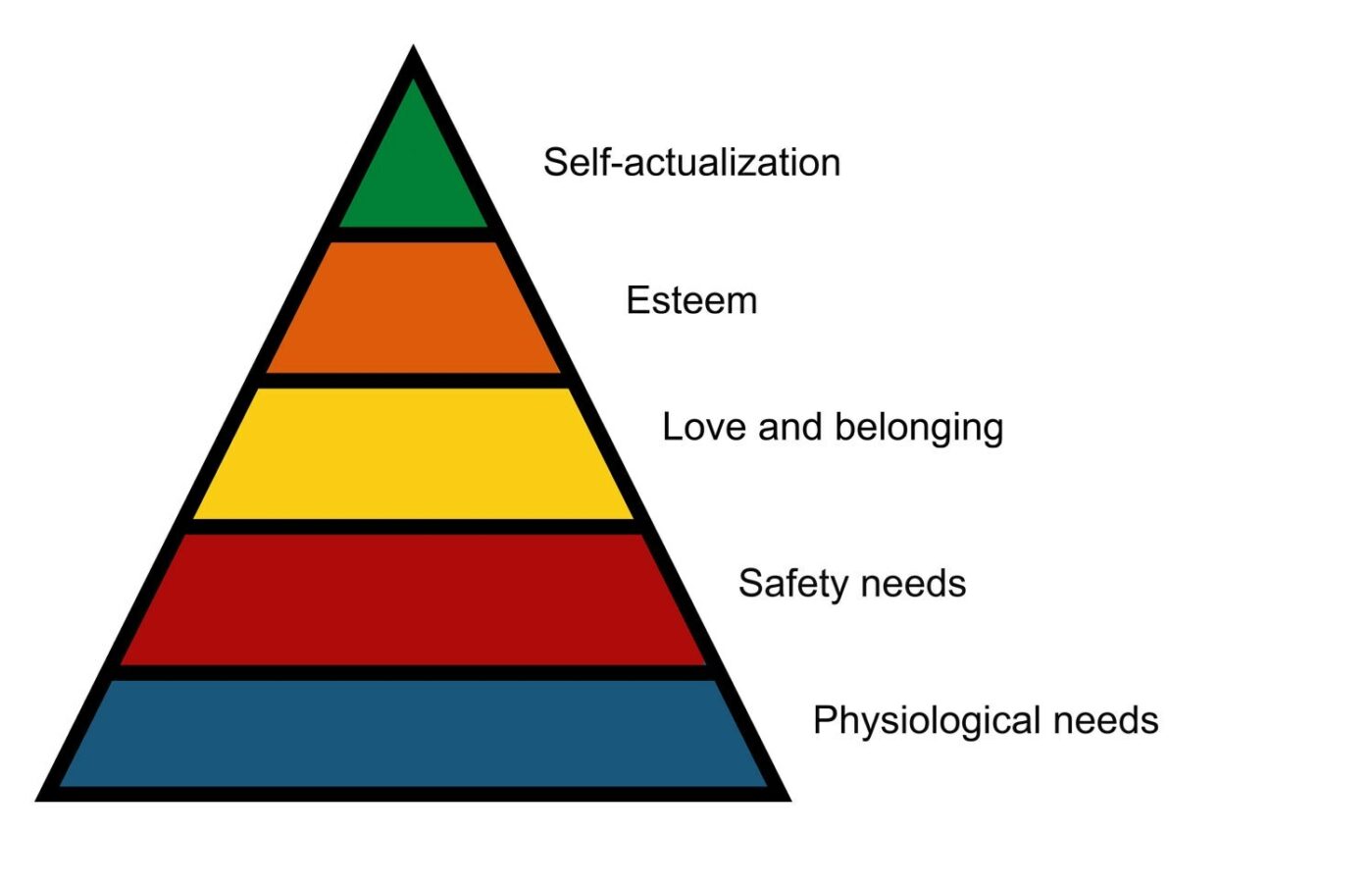The model is usually shown as a pyramid. On the lower levels, there are basic human needs that must be met before a person can move up to the peak of the pyramid and enjoy their full potential.
From the bottom to the top, the pyramid shows the following needs:
- physiological needs
- safety needs
- love and belonging
- esteem
- self-actualization.
For people who have been displaced, their most important needs on arrival will be practical ones such as food and warmth, accommodation, access to financial support and safety.
Moving up the hierarchy, a person will also need to build connections and engage with their new communities. This might include community groups, schools, and work opportunities.
People may need specific support and interventions because of adverse experiences and the impact of trauma. Once their more basic and fundamental needs are met, support can help a person build confidence and self-esteem, resulting in personal fulfilment.
Alongside the hierarchy of needs it’s also helpful to consider culture shock, and the different phases of this that people may be experiencing. It’s particularly important at this time to avoid making assumptions about people’s needs by having conversations to find out what matters to them.

